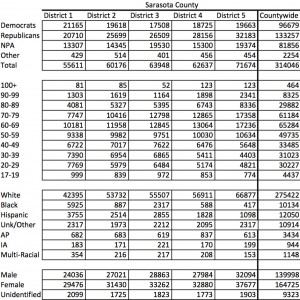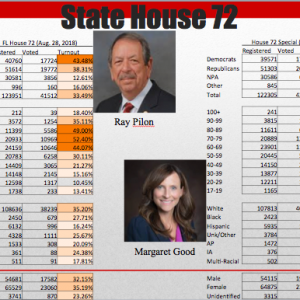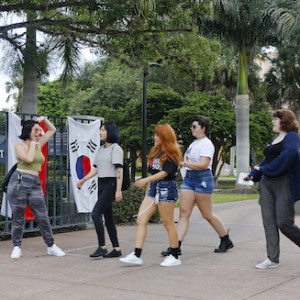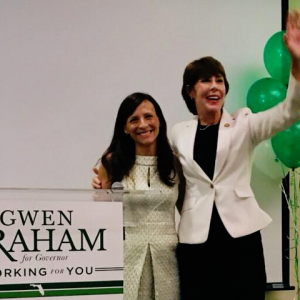Sarasota No Leader in Voter Participation
Under The Hood
SRQ DAILY
SATURDAY SEP 8, 2018 |
BY JACOB OGLES
The effort to reschedule Sarasota’s city elections officially moved from its petition drive stage into a full-fledged campaign for change, this week launching anew as Change the Date Sarasota. And while a campaign announcement touts the bipartisan organization and the chance to strengthen turnout and improve the diversity of the active electorate, it’s important as well to remember his modest and unremarkable the proposed change could be for the city.
That’s not an insult so much as an observation that Sarasota, historically viewed as the most important and progressive community in Southwest Florida, lags behind its neighbors in the simple mission to vote at a time that makes sense for voters.
City of Bradenton voters, for example, long voted in November but used to do so in odd-numbered years. But electors opted nearly a decade ago to abandon that practice and move contests to even-numbered years, just like the state does it. The move saved an estimated $110,000 a year, but more importantly, it saw a massive surge in turnout, from 14 percent voter participation in its last off-year election (November 2009) to about 66 percent participation in its most recent municipal contests (November of 2016).
And in cities like Venice, you can easily compare elections held in odd-numbered years and even-numbered ones. For example, voter turnout in city contests there in 2017 was about 33 percent. But in the citywide mayoral contest in Venice in 2016, almost 71 percent of voters turned out.
Heck, in the city of North Port, more than 65 percent of voters weighed in on a charter amendment in November 2016.
Compare all this to turnout in the City of Sarasota. In May of 2017, the last time the City of Sarasota held an election, just under 23 percent of voters came out to elect new Commissioners Jennifer Ahearn-Koch and Hagen Brody. That’s pathetic in comparison to any ballot measure or commission election held at a regularly scheduled time (referenda and board vacancies will inevitably bring oddly scheduled and poorly attended special elections from time to time).
Now that’s not to undermine the success of these individuals, who in fact won election to office by a record-setting number of supporters. But isn’t that sad? These individuals rode into office on mandates unlike anyone in a Sarasota city election ever enjoyed, yet their level of community support seems dwarfed when compared to officials on the Sarasota County charter review and hospital boards—where every election in November 2016 drew greater than a 66-percent turnout—by virtue of those entities getting elected alongside governors and presidents.
The thing is, Sarasota likes to think of itself as the region’s leader in political deliberation and consideration. Elections here become rowdy affairs. A special city meeting on a master planning document drew a standing-room-only crowd to commission chambers just two days ago.
But when you look at the level of involvement in city democracy, Sarasota can’t boast of its leadership. The community in fact lags behind neighbor to the north often dismissed as denizens of backward Bradentucky.
Sarasota, of course, continues to be the county seat, the cultural capital and the home to nearly every major news outlet serving the region. But on the issue of community involvement, it needs to do some catch-up on the fundamental process of holding a citywide vote. Fortunately, voters soon get the chance to remedy the problem.
And they will do so in a November election.
Jacob Ogles is contributing senior editor for SRQ Media Group.
« View The Saturday Sep 8, 2018 SRQ Daily Edition
« Back To SRQ Daily Archive









